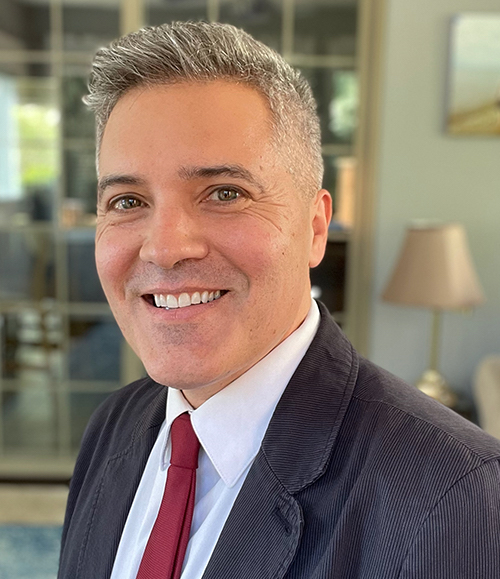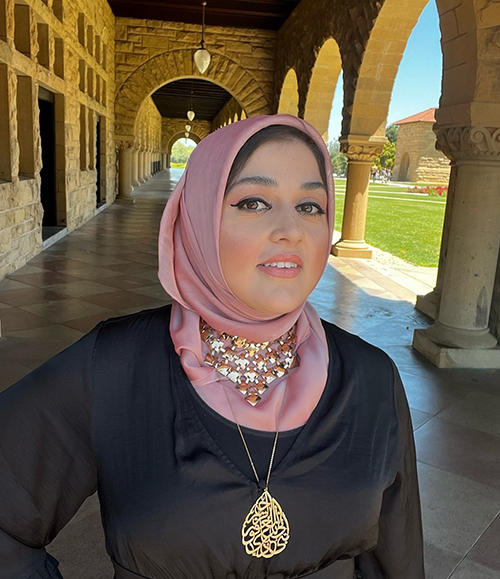As Vice President Kamala Harris gains more support and endorsements to be the 2024 Democratic nominee following President Joe Biden’s late decision to withdraw from the race, questions loom on how Harris, if nominated at the Democratic National Convention in August, will impact the general election race. The last time an incumbent president exited the race was when President Lyndon B. Johnson exited the race prior to the Democratic convention in 1968.
Michigan State University has experts who comment on the many angles of a potential Harris candidacy. Eric Juenke is an associate professor in the Department of Political Science and a faculty member in the Chicano/Latino Studies program in the College of Social Science. Nura Sediqe is an assistant professor in the Department of Political Science and a core faculty member in the Muslim Studies Program. Quinn Yeargain is the 1855 Professor of the Law of Democracy and is an associate professor of law in the College of Law.
Together, Juenke, Sediqe and Yeargain answer questions on how Harris has changed this election, how she may go about selecting her vice president and how she would make history if nominated.
Changing the presidential campaign
Could a Harris nomination increase the odds of a Democratic victory?
Juenke: Harris has energized Democratic voters in a way that we have not seen all year during this campaign. Voters told pollsters repeatedly this cycle that they did not like either of the parties’ candidates, so a new face on the ballot has put some excitement back into the race for Democratic voters and some independents based on recent polling and donations data. Generally speaking, both Biden stepping down and the Democratic Party officials quickly coalescing around Harris has given a bump to the Democrats’ chances in the presidential race and in down ballot races. We will see if this holds or changes based on the next month of news.
Why could a Harris nomination over that of President Biden resonate more with Democrats?
Sediqe: President Biden’s foreign policy stances have alienated key voting blocs in Michigan, primarily Arab and Muslim Americans, who have been staunch Democrats in Michigan. The voices of Arab and Muslim community leaders have felt largely dismissed by President Biden. Kamala Harris appears to be more attuned to these perspectives and preferences and appears more amenable to taking the concerns of these communities into consideration, particularly with the current civilian crisis in Gaza. Her role may mobilize younger voters and minority voters in meaningful ways that can swing the election in states where the electoral margin has been slim.
Vice presidential selection
How do presidential candidates go about selecting their running mates?
Yeargain: Picking a running mate can incorporate a lot of possibilities — balancing out demographics on the ticket, ensuring geographic diversity, trying to gain an advantage in a swing state, ripple effects on the party’s power — but at the end of the day, the ultimate, and most obvious, priority is for the running mate to add more advantages than disadvantages. In other words, the running mate should do no harm.
One of the silver linings of going through a tough primary before being a party’s nominee for president is that the candidate shows how they hold up under pressure, how they handle attacks and what is lurking in their background. But with possible vice presidential candidates, they usually haven’t always endured that kind of tough scrutiny, so there are a lot of inherent risks when picking a running mate.
Who might Vice President Harris select as her running mate?
Yeargain: Vice President Harris is in a tricky situation with a lot of good options and some more neutral ones. She certainly does not want to alienate any of the party’s core constituents, which could caution against picking someone like Sen. Mark Kelly of Arizona, who has a complicated relationship with labor, or Gov. Josh Shapiro of Pennsylvania, who favors charter schools and is opposed by educators’ groups. She may feel some pressure to pick someone from a swing state, which could advantage someone like Gov. Roy Cooper of North Carolina, but this is increasingly a back-burner consideration when picking a running mate. And, as the first woman of color to be the nominee for president of a major political party, she may want to demographically balance out the ticket, but she might also want to make history by picking someone like Michigan Gov. Gretchen Whitmer. I see the strongest possible candidates as Kentucky Gov. Andy Beshear, North Carolina Gov. Roy Cooper, Minnesota Gov. Tim Walz, or our governor, Gretchen Whitmer.
Historic nature of a Harris nomination
Why is this election shaping up to be so historic?
Sediqe: This election is historic given the positionality of Kamala Harris as the first woman president. Vice President Harris is also positioned to be the first Black woman, first Indian American to become president. Moreover, her potential nomination occurring at the Democratic National Committee’s convention is situated in the backdrop of the DNC’s history in Chicago. In 1968, the DNC was particularly tumultuous, given citizen’s roles protesting the Vietnam War and targeted police violence against Black communities. This links the rising concerns that citizens may bring to Chicago, with the recent death of Sonya Massey at the hands of police in Illinois and the Democrats pushing for pro-peace solutions to the current conflict in Gaza.
How will voters react to Harris at the top of the ticket?
Juenke: While it is clear that many voters have racial and gender biases that will affect how they feel about Harris, how they think about her policy priorities, and how “electable” they think she is, our research has shown that while these are real and difficult barriers that Black women candidates face, they do not, on average, hinder their success with voters in partisan elections.
Our research on thousands of state legislative elections over the last 10 years demonstrates that despite women and women of color candidates facing real biases from many voters, these candidates do as well and perhaps even better than white men from the same party, all else equal. We’ve seen this in close elections with winning candidates like Lauren Underwood (IL-14), Lucy McBath (GA-7), Monica De La Cruz (TX-15) and even in unsuccessful campaigns like Stacy Abrams, who did better than previous Democrats in running for governor of Georgia. Other research suggests that people in both parties are excited to support racially and ethnically diverse candidates if they are on their political “team.” So, our research would suggest that Harris will do as well and, likely better, than Joe Biden would have done against Donald Trump, but we don’t know yet if that is enough to win.


